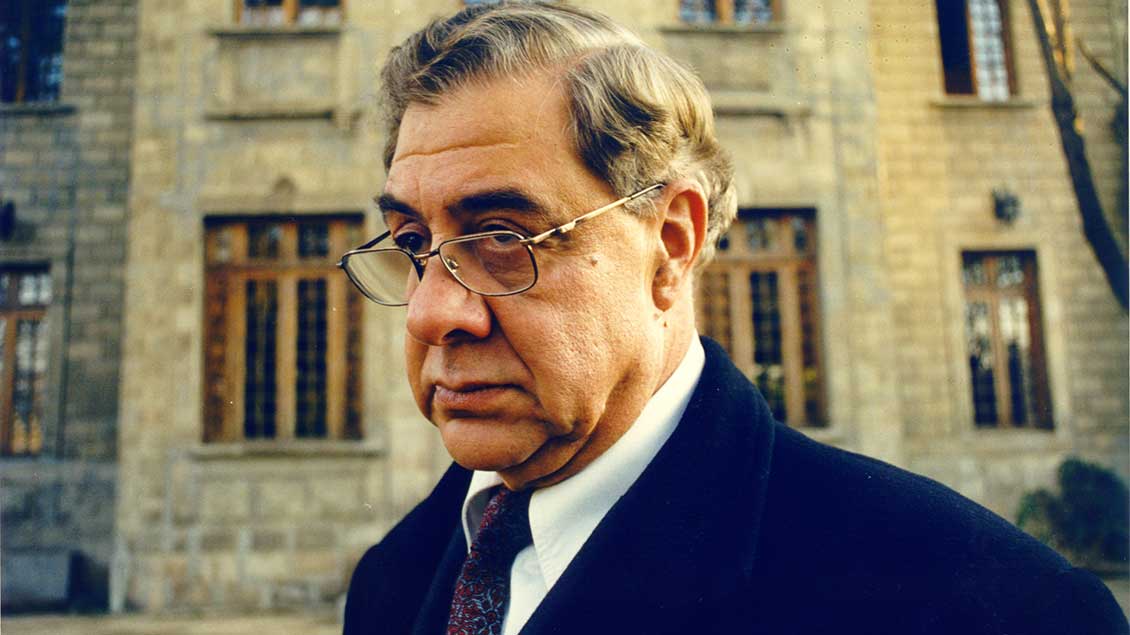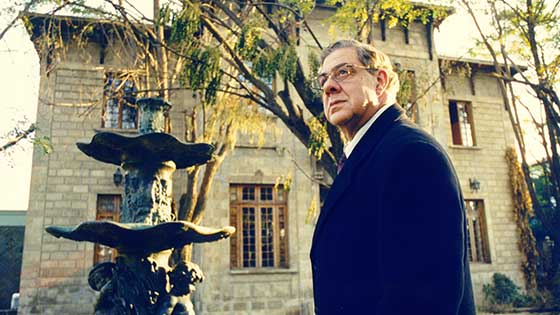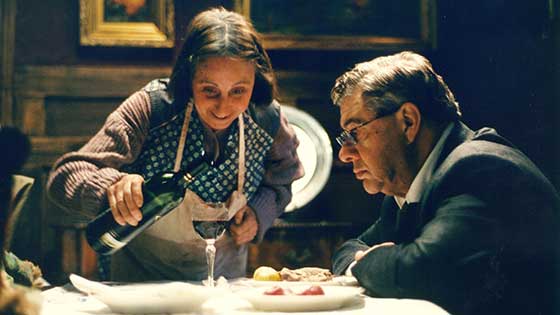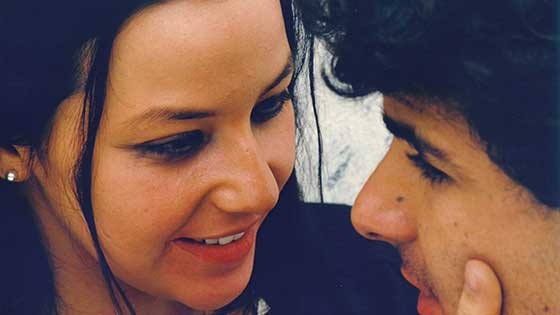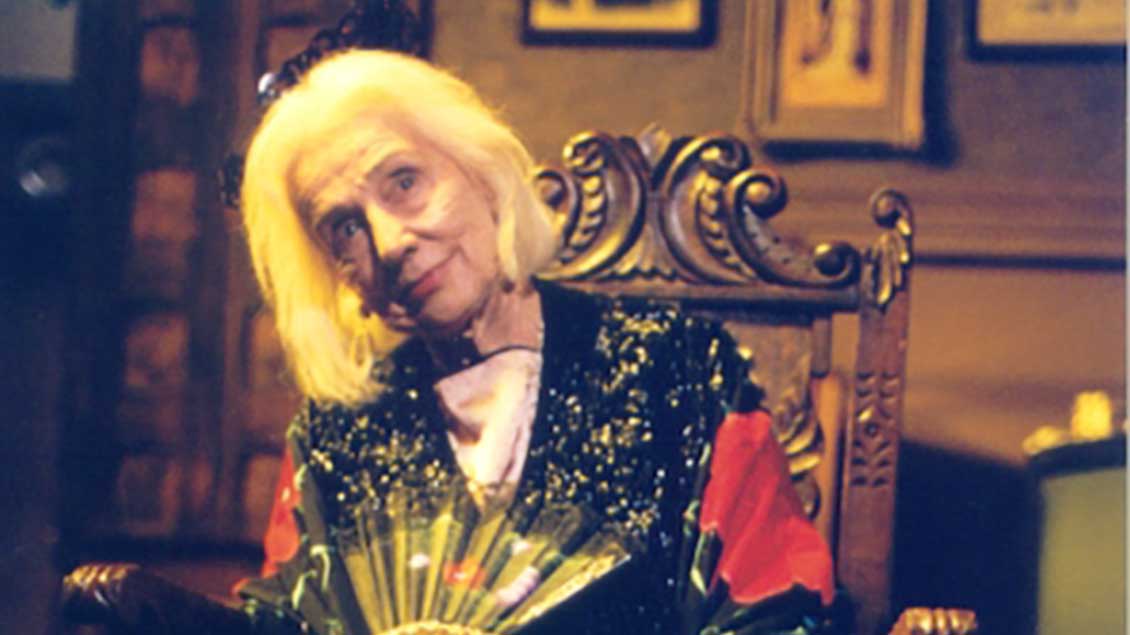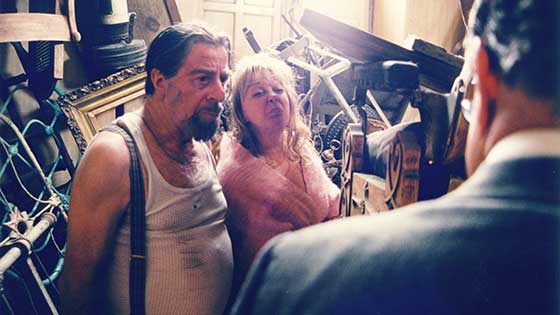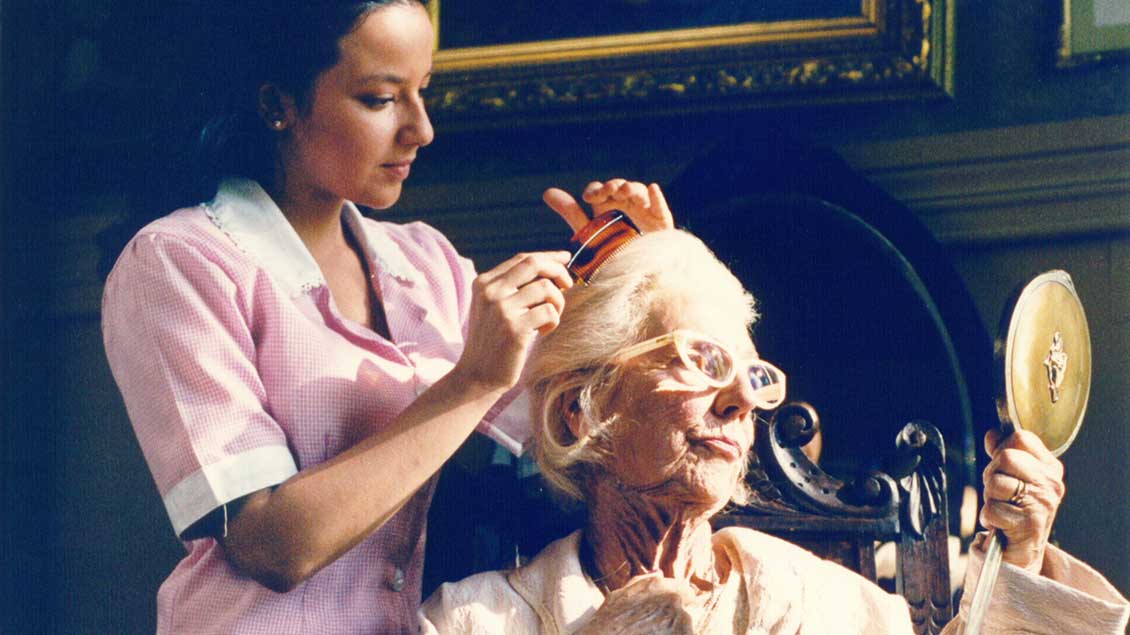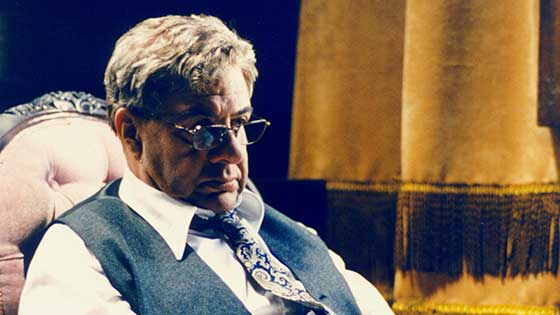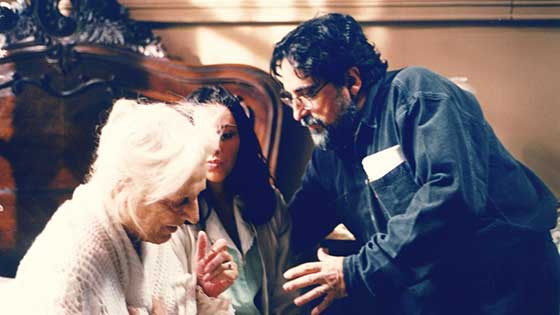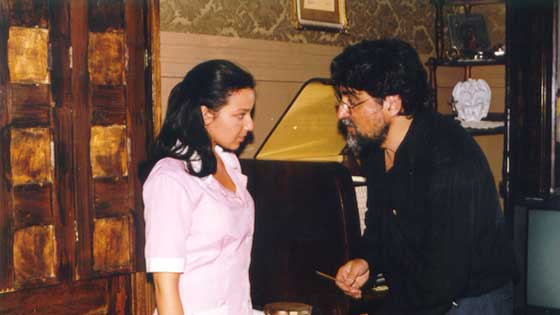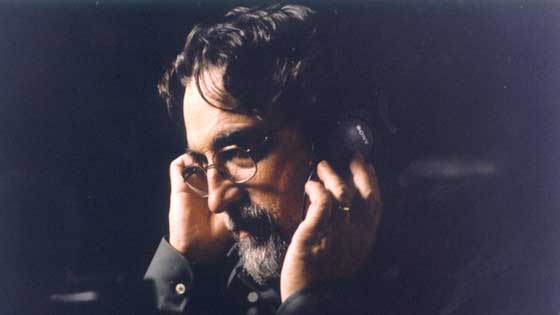CORONATION (2000)
Don Andrés, the last heir of the wealthy Avalos family, feels he has dedicated his 58 years of life in vain to reading and searching for a reason of existence. After hiring a 17-year-old country girl to take care of his senile grandmother, Don Andrés cannot help feeling the darkest and shameful desires for the girl. His psychological breakdown and the deterioration of the Avalos mansion are inevitable.
"Coronation" is the first novel José Donoso wrote, which immediately makes him one of the greatest writers of the Latin American literature.
This powerful work is a deep inquiry into a world of characters that intersect Chilean society in terms of culture and generation. Nevertheless, the issues and conflicts reflected in the novel reach a universal scope that explains the international success of "Coronation".
Despite accurately conserving the characters and storyline of the book, the screenplay adapts the story to the present time by transforming the evocative literary language into an expressive audiovisual narrative.
José Donoso (1924-1996) is one of the most representative and original writers of his generation due to the creation of mind-blowing atmospheres and obsessive characters. Being a novel and short story enthusiast, he began painting the decline of the creole aristocracy: CORONACIÓN (1958; Coronation) - ESTE DOMINGO (1966; This Sunday) - EL LUGAR SIN LIMITES (1967; “The Place without Limits”; Hell has no Limits) - EL OBSCENO PÁJARO DE LA NOCHE (1970; The Obscene Bird of Night) - CASA DE CAMPO (1978; A House in the Country) - EL JARDÍN DE AL LADO (1981; The Garden Next Door) - LA DESESPERANZA (1986; “Hopelessness”; Eng. trans. Curfew) - DONDE VAN A MORIR LOS ELEFANTES (1985; Where Elephants go to Die), among others.
As part of the contemporary Latin American literary boom, he is internationally renowned: His work has been translated in 17 languages, and some of his novels and short stories made it to the big screen. He received the Prize of Critics in Murcia, Spain (1979); the National Prize for Literature, Chile (1990); and the Gabriela Mistral Award in grade of Grand Officer, Chile (1995).
The luxurious Municipal Theater of Santiago -which was traditionally home to concerts, opera, and ballet performances- opened its doors for the first time to the premiere of a film on April 27th, 2000. The premiere was attended by the Honorable President of the Republic, Mr. Ricardo Lagos Escobar. "Coronation" was praised for the first time by the audience and the critics.
"MASTERFUL!"
"...it is a fine and precious gem... Whichever way you look at it, the film is brilliant..."
Ana Josefa Silva (La Segunda Newspaper)
"CORONATION deserves a place of honor among the finest works of the Chilean Cinema"
Mariano Silva (National Television)
EXTRAORDINARY!
"Coronation really improves the Chilean cinema"
Gladys Pinto (Universidad de Santiago Radio)
"...when the film comes to an end, the satisfaction definitely goes through the heart before reaching the palm of the hands."
Francisco Aravena (El Mercurio April 24th)
- Nominated by the Chilean Government for “Best Foreign Film”, Academy Awards, USA (2000)
- Best Director, Montreal World Film Festival, Canada (2000)
- Best Film, Huelva Latin American Film Festival, Spain (2000)
- Best Actor, Huelva Latin American Film Festival, Spain (2000)
- Best Screenplay, Huelva Latin American Film Festival, Spain (2000)
- Best Film, International Association of Journalists Award, Huelva Latin American Film Festival, Spain (2000)
- Best Film, “Radio Exterior de España” Award, Huelva Latin American Film Festival, Spain (2000)
- Best Film, Trieste Latin American Film Festival, Italy (2000)
- Best Director, Trieste Latin American Film Festival, Italy (2000)
- Best Music, Trieste Latin American Film Festival, Italy (2000)
- Best Actor, International Festival of New Latin American Cinema of La Habana, Cuba (2000)
- Best Art Direction, International Festival of New Latin American Cinema of La Habana, Cuba (2000)
- Best Actress, Fort Lauderdale International Film Festival, USA (2000)
- Best Director, Viña del Mar International Film Festival, Chile (2000)
- Best Actor, Viña del Mar International Film Festival, Chile (2000)
- Best Actress, Viña del Mar International Film Festival, Chile (2000)
- Best Film, Association of Art Critics Award, Valparaíso, Chile, (2000)
- Best Film, Association of Art Critics Award, Santiago, Chile, (2000)
- Best Film, Annual APES Award-- Arts and Entertainment Critics Award, Chile (2000)
- Best Director, Annual APES Award-- Arts and Entertainment Critics Award, Chile (2000)
- Best Leading Actor, Annual APES Award-- Arts and Entertainment Critics Award, Chile (2000)
- Best Leading Actress, Annual APES Award-- Arts and Entertainment Critics Award, Chile (2000)
- Best Supporting Actor, Annual APES Award-- Arts and Entertainment Critics Award, Chile (2000)
- Best Supporting Actress, Annual APES Award-- Arts and Entertainment Critics Award, Chile (2000)
- Best Director, International Film Festival of Cartagena de Indias, Colombia (2001)
- Best Cinematography, International Film Festival of Cartagena de Indias, Colombia (2001)
- Best Supporting Actress, International Film Festival of Cartagena de Indias, Colombia (2001)
- Best Film, Providence Latin American Film Festival, Rhode Island, USA (2001)
- Best Actor, Lima International Film Festival, Peru (2001)
- Best Arthouse Film, Warsaw Latin American Film Festival, Poland (2001)
- Best Film, New York Latino Film Festival, USA (2001)
- Best Actress, New York Latino Film Festival, USA (2001)
- Best Sound Editing, New York Latino Film Festival, USA (2001)
- Audience Award, Montevideo International Film Festival, Uruguay (2001)
- Special Jury Prize, Montevideo International Film Festival, Uruguay (2001)
- Best Director, Altazor Award of the National Arts, Chile (2001)
- Best Actress, Altazor Award of the National Arts, Chile (2001)
- Best Actor, Altazor Award of the National Arts, Chile (2001)
- Best Creative Contribution, Altazor Award of the National Arts, Chile (2001))
Title
CORONATION
Genre
Fiction
Cast
Julio Jung
Andrés
María Cánepa
Elisa
Adela Secall
Estela
Gabriela Medina
Lourdes
Jaime Vadell
Carlos Gross
Myriam Palacios
Rosario
Paulo Meza
Mario
Luis Dubó
René
Director
Silvio Caiozzi.
Executive Producers
Silvio Caiozzi y Guadalupe Bornand.
Cinematography
David Bravo.
Art Direction
Guadalupe Bornand.
Music
Luis Advis.
Screenplay
Silvio Caiozzi.
Staging
Fernando Guariniello.
Sound Editor
Marcos Maldavsky.
Assistant Manager
Nelson Fuentes.
Film Format
35 mm., color.
Screening Format
1.66.
Sound Format
Dolby Digital Surround.
Runtime
140 minutes.
Film Length
12,700 feet.
Release Year
2000
